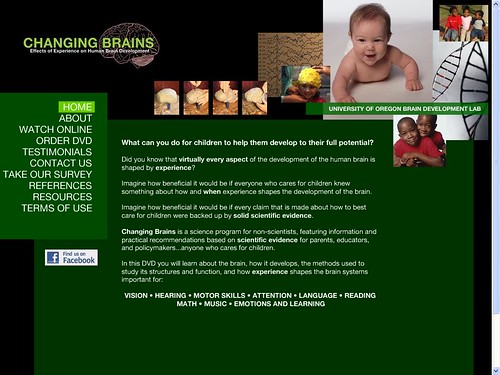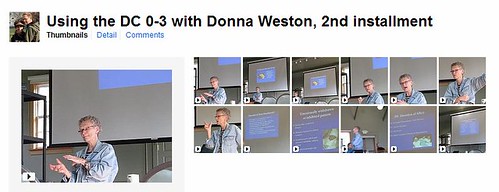As part of my effort to stay abreast of my chosen field, and with this blog in mind, I have set-up Google Alerts (email updates of the latest relevant Google results [web, news, etc.] based on a query or topic) for "infant mental health," "early childhood mental health consultation," and "parent child interation therapy." Believe it or not, every day something new shows up in my Gmail in one, two, or all three of these categories.
Here is my find of the day, Paul Nyhan's blog for Thrive By Five called
Birth to Thrive. Paul was a reporter for the Seattle PI, before setting out on his blogging adventure. I like his
Early Learning News Week in Review. There are so many ways to keep up. -gw
Speaking of blogs, a few days I passed word on to my colleagues here at Kitsap Mental Health, many of whom are now trained in Parent Child Interaction Therapy, about this from PCIT International:
http://pcitinternational.wordpress.com/. -gw






